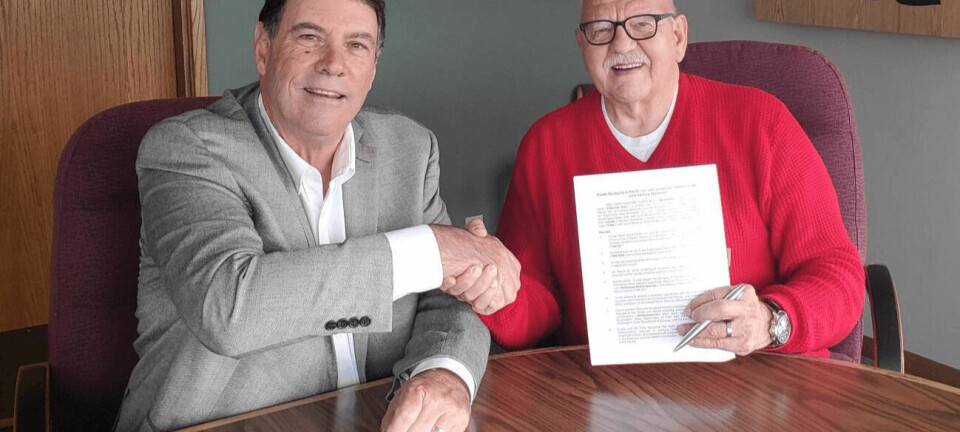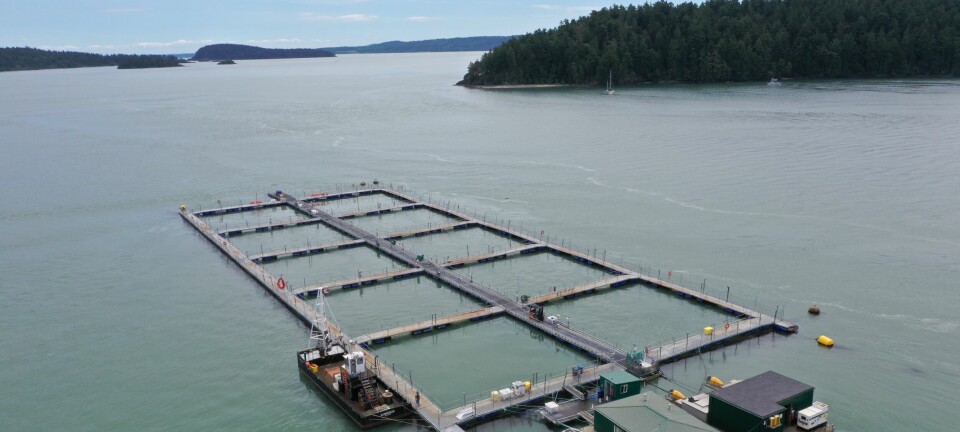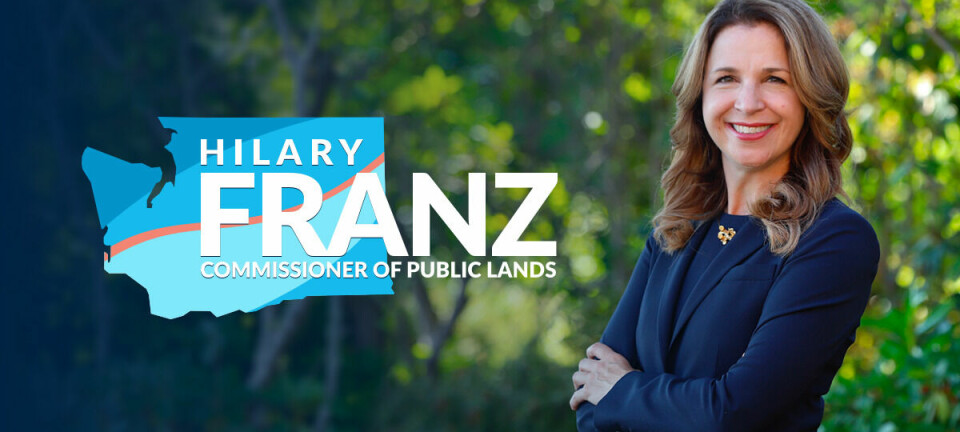
Cooke seeks injunction to stop rushed eviction from Puget Sound
Court will hear fish farmer’s case for more time on January 6
Fish farmer Cooke Aquaculture Pacific, which is facing eviction from sites in Washington State in the US, yesterday applied for a preliminary court injunction against the state’s Department of Natural Resources (DNR) and public lands commissioner Hilary Franz.
Canadian-owned Cooke is attempting to secure what it says is a reasonable timeframe to safely harvest 360,000 rainbow trout and remove equipment at the Rich Passage and Hope Island fish farm sites in Puget Sound.
The motion to the Superior Court of the State of Washington is in addition to a court appeal by Cooke against the DNR’s refusal to renew leases for the sites, and a lawsuit filed by the Jamestown S’Klallam Tribe to protect its sovereign rights in response to Franz also banning marine net-pen aquaculture in state-controlled waters. The tribe has been working to re-open a former Cooke site at Port Angeles to farm trout and sablefish (black cod).
The injunction hearing has been scheduled for January 6.
Staggered harvests
In a declaration supporting the injunction request, Cooke Aquaculture Pacific permit coordinator Kevin Bright explained that the company has fish at harvest size in the Hope Island farm and Clam Bay, one of three farms at the Rich Passage site. Harvesting of fish at Hope Island began in September and was scheduled to be completed around February 2023.
Harvesting of fish at Clam Bay, which was stocked three to four months later than Hope Island to ensure continuity of supply, began last month and was scheduled to continue until April 2023.
He said the DNR’s November 14 decision not to renew leases for the sites came as a surprise to Cooke, and that an accompanying demand to remove the fish and farms from the sites by December 14 was impossible for Cooke to meet.
A new market
“Cooke had approximately 360,000 fish at the Hope Island and Rich Passage sites that were at or nearing their harvestable sizes at the time the demand was made,” wrote Bright, who added that the fish were the first steelhead (rainbow trout) grown following a state ban on Atlantic salmon farming, and Cooke was still building up its customer base.
“Cooke had to find new customers and was able to gradually work up to selling approximately 20,000 fish a week during its harvests at Hope Island. At that rate, Cooke needs another 18 weeks to finish harvesting the remaining crops of fish at Hope Island and Rich Passage.”
In a press release, the company stated that it operates its farm sites according to carefully coordinated farm management plans, with employee safety being its top priority.
'Politically motivated' action
“Significant changes in harvest schedules can both increase safety risks for employees and disruptions for customers. The arbitrary timelines set forth in Hilary Franz’s politically motivated executive action are impossible to meet without exposing Cooke employees to dangerous winter working conditions, increasing perceived environmental risks, and causing significant financial harm.
“Cooke shared these concerns with DNR, but the Department was unwilling to adjust its demands. On November 23, 2022, DNR declined Cooke’s request for a reasonable amount of time to harvest fish and remove the equipment from the water. DNR arbitrarily agreed to give Cooke 31 additional days to harvest all the fish by January 14, 2023 and remove all the equipment by April 14, 2023.
“Cooke has repeatedly explained to DNR why these deadlines pose safety risks to its employees, risks to the environment, and risk of financial loss in the form of destroyed crops. Despite additional communications on December 14, 2022, DNR again arbitrarily ignored these explanations leaving Cooke no alternative but to seek injunctive relief.
“The requested injunctive relief is necessary to ensure that Cooke can safely and responsibly take the necessary actions if it is required to close its operations at Hope Island and Rich Passage. Cooke is seeking what is only reasonable to expect from DNR: the time to do things right.”


























































